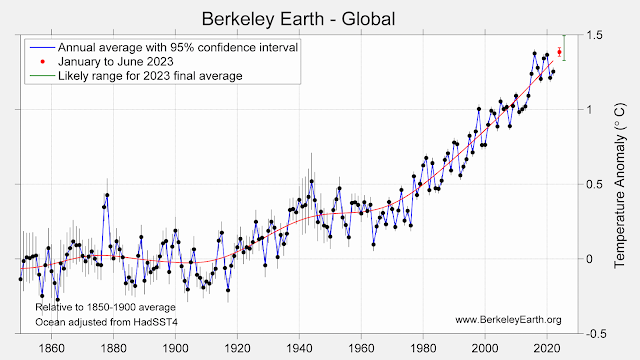Climate in 2023: A Mid-Year Update

We're now just past half way through 2023. At the beginning of the year, it was expected that there was a good likelihood that we would transition into El Niño conditions sometime in the Spring or Summer, and this might lead to a new record high GMST in 2024, with a small chance of this happening in 2023. However, with developments occurring over the last couple months, all that has changed. On Twitter, Zeke Hausfather provided data from Berkeley Earth that, barring some event like a large volcanic eruption, there is an 81% chance that 2023 would beat out 2016/2020 as the warmest year on record. In fact, the year-to-date average already surpasses 2020, and there's a small potential that this year could be the first year to hit the +1.5 ° C above the 1850-1900 mean. Hitting 1.5 ° C would not mean that we have missed the IPCC target of 1.5 ° C, since that target is built on the 30-year average, not a single year. But what changed from the beginning of the year ...
.png)